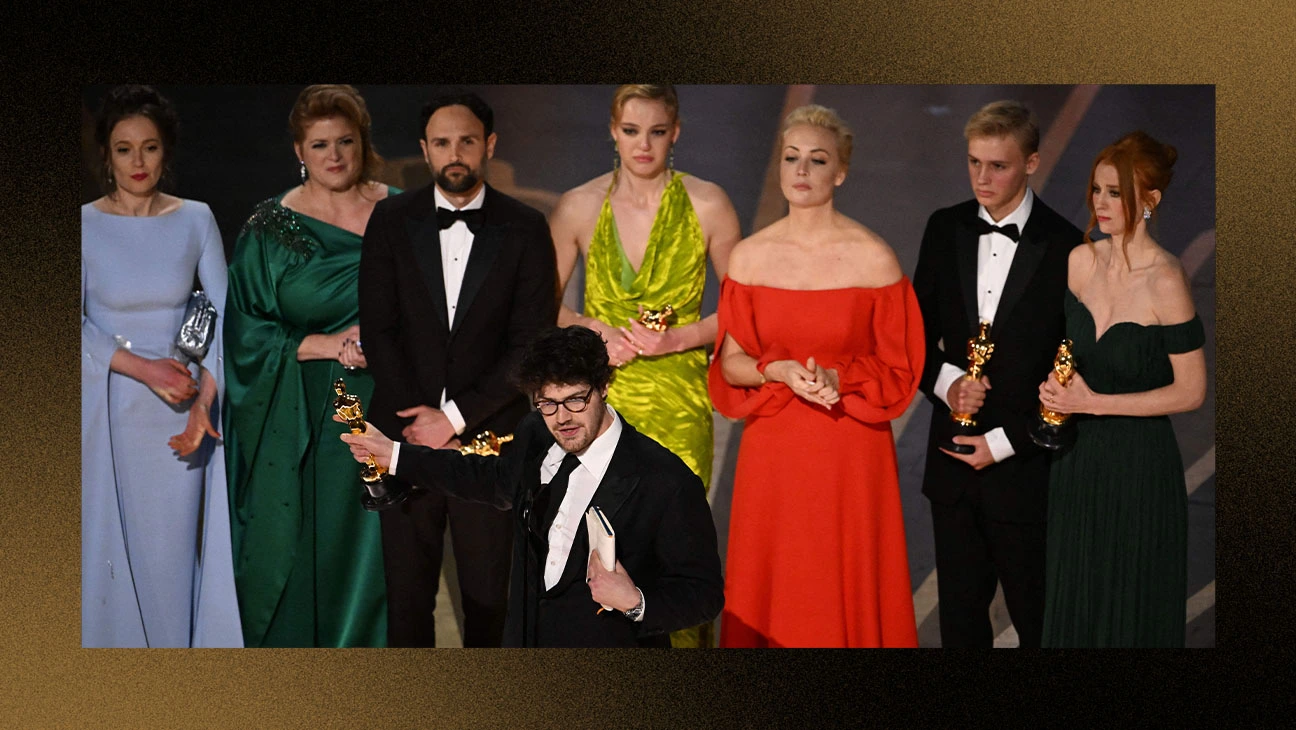
Putin opponents and Russian liberals celebrate Navalny’s Oscar success
NOTE: This article is a republication- Source: The Guardian (by Pjotr Sauer).
Russian liberals on Monday celebrated the Oscar win of Navalny, a documentary about the poisoning and imprisonment of the “hero” Russian opposition leader Alexei Navalny.
The film, which won best feature documentary at the Academy Awards in Los Angeles on Sunday, follows an investigation by Navalny’s team together with the Bellingcat group as they unmask FSB agents who were sent to poison Navalny in 2020. The Kremlin has always denied involvement.
The director, Daniel Roher, accepted his statuette by dedicating it to Navalny and to all political prisoners around the world.
“Alexei Navalny, the leader of the Russian opposition, remains in solitary confinement for what he calls — I want to make sure we get his words exactly right – ‘Vladimir Putin’s unjust war of aggression in Ukraine,’” Roher said.
“Alexei, the world has not forgotten your vital message to us all: we must not be afraid to oppose dictators and authoritarianism wherever it rears its head.”
Joining the director on stage, Navalny’s wife, Yulia Navalnaya, said: “My husband is in prison just for telling the truth. My husband is in prison just for defending democracy.
“Alexei, I’m dreaming of the day when you will be free.”
On Monday morning, prominent Russian opposition figures and journalists went on social media to congratulate Navalny.
Mikhail Khodorkovsky, a former oil tycoon who fell foul of the Kremlin, tweeted: “Congratulations to colleagues on the Oscar for the film Navalny! I hope this helps Alexei survive,” Khodorkovsky wrote on Twitter.
Mikhail Fishman, a popular liberal Russian journalist and film-maker, described Navalny as a “hero” and called for his release.
“Navalny received an Oscar because he is a hero, and because the day is not yet in sight when he will be released from prison. But that day will surely come. Freedom to Navalny! Freedom for all of us!”
Navalny, 46, is serving sentences totalling 11.5 years on charges including fraud and contempt of court. Supporters and leading human rights groups say his health has severely deteriorated after about a dozen spells in solitary confinement.
“His health and wellbeing are at grave risk, and this is tantamount to cruel, inhuman or degrading treatment,” Marie Struthers, Amnesty International’s director for eastern Europe and central Asia, wrote in September.
The Academy Awards’ decision to award “Navalny” an Oscar was met with anger and contempt by the pro-government camp.
Vladimir Putin’s spokesperson, Dmitry Peskov, told journalists on Monday that he had not seen the Navalny documentary but the award was probably “politicised”.
Sergei Markov, a pro-Kremlin analyst, said the award reflected the “degradation of the Oscars”.
“The film Navalny is absolutely one-dimensional propaganda. Anti-Russian propaganda. The film tries not to show the truth of life but to hide the truth,” Markov wrote on his Telegram channel.
Several leading government-owned media outlets did not report on the film’s victory, omitting it from their Oscars coverage.
Putin famously refuses to call Navalny by his name, preferring to refer to the opposition leader as a “certain political force” or “this gentleman”.